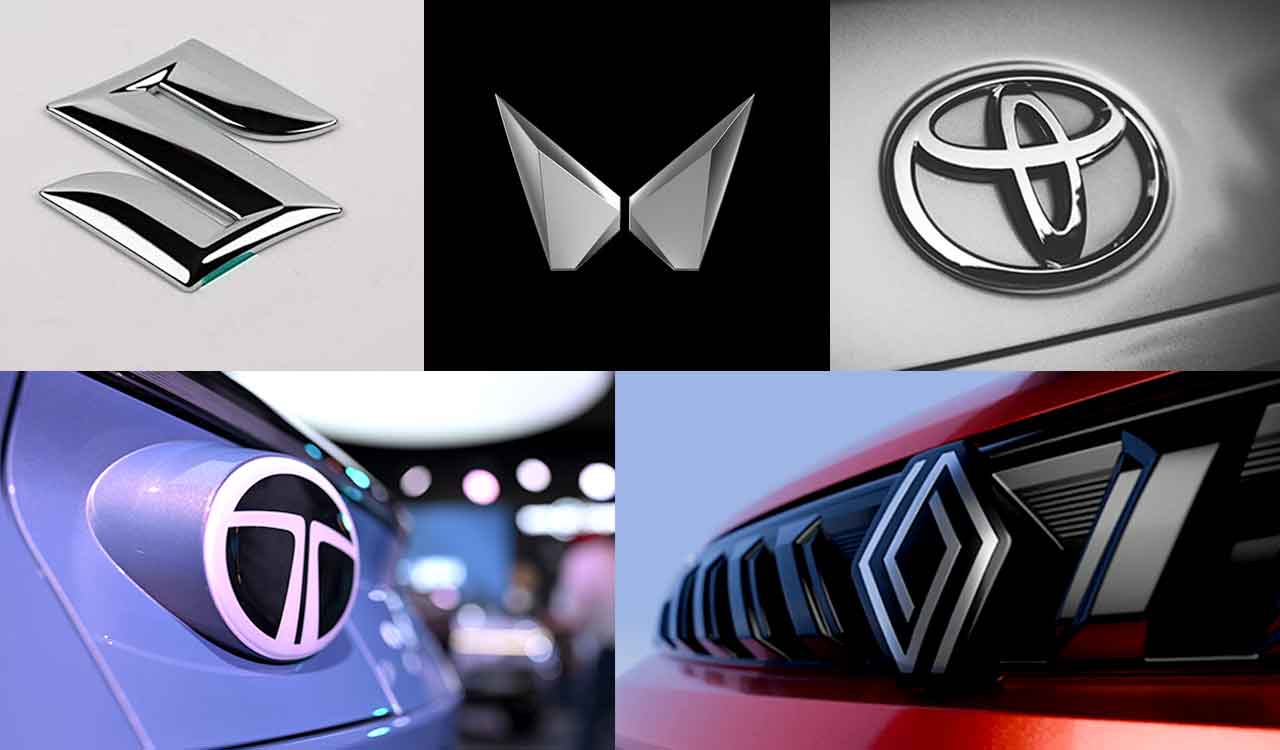GST rejig: These cars get cheaper now
With reduction in GST on passenger vehicles, effective September 22, automakers slash prices across models to boost festive demand

New Delhi: Joining other automakers in reducing prices, Mahindra & Mahindra Ltd (M&M) on Saturday announced to fully pass on the GST 2.0 benefits to customers across its ICE SUV portfolio — up to Rs 1.56 lakh — with an immediate effect.
According to the company, models like Thar, Scorpio, Bolero, XUV700, and Scorpio-N will be available with substantial savings ranging from Rs 1.01 lakh to Rs 1.56 lakh. Bolero and Bolero Neo are cheaper by up to Rs 1.27 lakh, while the XUV3XO Petrol gets a cut of Rs 1.40 lakh, and the XUV3XO Diesel leads with a reduction of Rs 1.56 lakh.
Also Read
The Scorpio-N offers savings of up to Rs 1.45 lakh, the Thar Roxx Rs 1.33 lakh, and the flagship XUV700 RS 1.43 lakh.
Toyota
Toyota Kirloskar Motor (TKM) also announced it will fully pass on the benefits of the recent GST rate reduction to its customers across its range of vehicles — ranging from Rs 48,700 (Rumion) up to Rs 3.49 lakh (Fortuner).
“We sincerely thank the government of India, for this historic reform. It has not only enhanced affordability for customers but also strengthened overall confidence in the auto sector. Ahead of the festive season we expect this step will provide strong momentum and further accelerate demand,” said Varinder Wadhwa, Vice President, Sales-Service-Used Car Business and Profit Enhancement.
While Toyota Glanza will see price cuts up to Rs 85,300, Taisor will see price reduction up to Rs 1,11,100; Hyryder up to Rs 65,400; and Fortuner up to Rs 3,49,000.
Renault
Renault India too has joined the price reduction bandwagon. Prices of its three models — Kwid, Triber and Kiger — have been slashed by up to Rs 96,395. As per the French carmaker, with this revision, the Kwid now starts at Rs 4,29,900 (ex-showroom), while both the new Triber and the new Kiger begin at Rs 5,76,300 (ex-showroom).
The updated prices will apply to all deliveries made on or after September 22; however, bookings at the revised rates are open immediately at Renault dealerships.
“Passing on the full GST 2.0 benefit is a reflection of our unwavering commitment to our customers. We believe this timely initiative will not only make our cars more accessible but also energise demand during the festive season,” said Venkatram Mamillapalle, Managing Director, Renault India.
Tata Motors
Tata Motors will cut passenger vehicle prices ranging between Rs 65,000 and Rs 1.45 lakh effective September 22 to pass on the full benefit of GST reduction to customers. The Mumbai-based auto major said that its small car Tiago will see a price drop of Rs 75,000, Tigor Rs 80,000, and Altroz Rs 1.10 lakh.
Similarly, the price of compact SUV Punch will come down by Rs 85,000 and that of Nexon by Rs 1.55 lakh. Mid-sized model Curvv would also see a price cut of Rs 65,000, Tata Motors said in a statement.
Prices of company’s premium SUVs — Harrier and Safari — will see a price reduction of 1.4 lakh and Rs 1.45 lakh respectively, it added.
The reduction in GST on passenger vehicles, effective September 22, 2025, is a progressive and timely decision that will make personal mobility more accessible for millions across India, Tata Motors Passenger Vehicles MD Shailesh Chandra said.
Chandra noted that the GST rate cut will make the company’s popular range of cars and SUVs even more accessible across segments, enabling first-time buyers and accelerating the shift towards new-age mobility for a wider spectrum of customers.
Maruti Suzuki and others will likely follow suit anytime before the new GST rates come into effect on September 22.
Under the new GST 2.0 framework, all internal combustion engine (ICE) cars are now taxed at either 18 per cent or 40 per cent. Smaller cars such as hatchbacks, compact sedans, and compact SUVs fall under the 18 per cent slab, while mid-size, larger, and luxury models attract 40 per cent.
Previously, ICE vehicles were subject to 28 per cent GST plus an additional compensation cess ranging between 1 per cent and 22 per cent depending on size and engine capacity.
For electric vehicles, the GST rate remains unchanged at 5 per cent, while hydrogen fuel cell vehicles (FCEVs) have seen a reduction from 12 per cent to 5 per cent.
Related News
-
Jangaon Municipality chairperson, vice chairperson election held amid protests
5 mins ago -
Hyderabad: 23 foreign nationals detained in Tolichowki cordon-and-search operation
7 mins ago -
C. Subramaniam Award presented to CDS Chairperson Mallepalli Laxmaiah
23 mins ago -
C Shekar Reddy to take over as CII-IGBC National Chairman
38 mins ago -
God of War: Sons of Sparta review — Bold experiment that falls short
48 mins ago -
BRS celebrates KCR’s 72nd birthday with Telangana-themed programmes
56 mins ago -
GMRIT notified as Deemed-to-be-University by Ministry of Education
1 hour ago -
Hyderabad to host ICCA Global Summit 2027 for first time in India
1 hour ago




